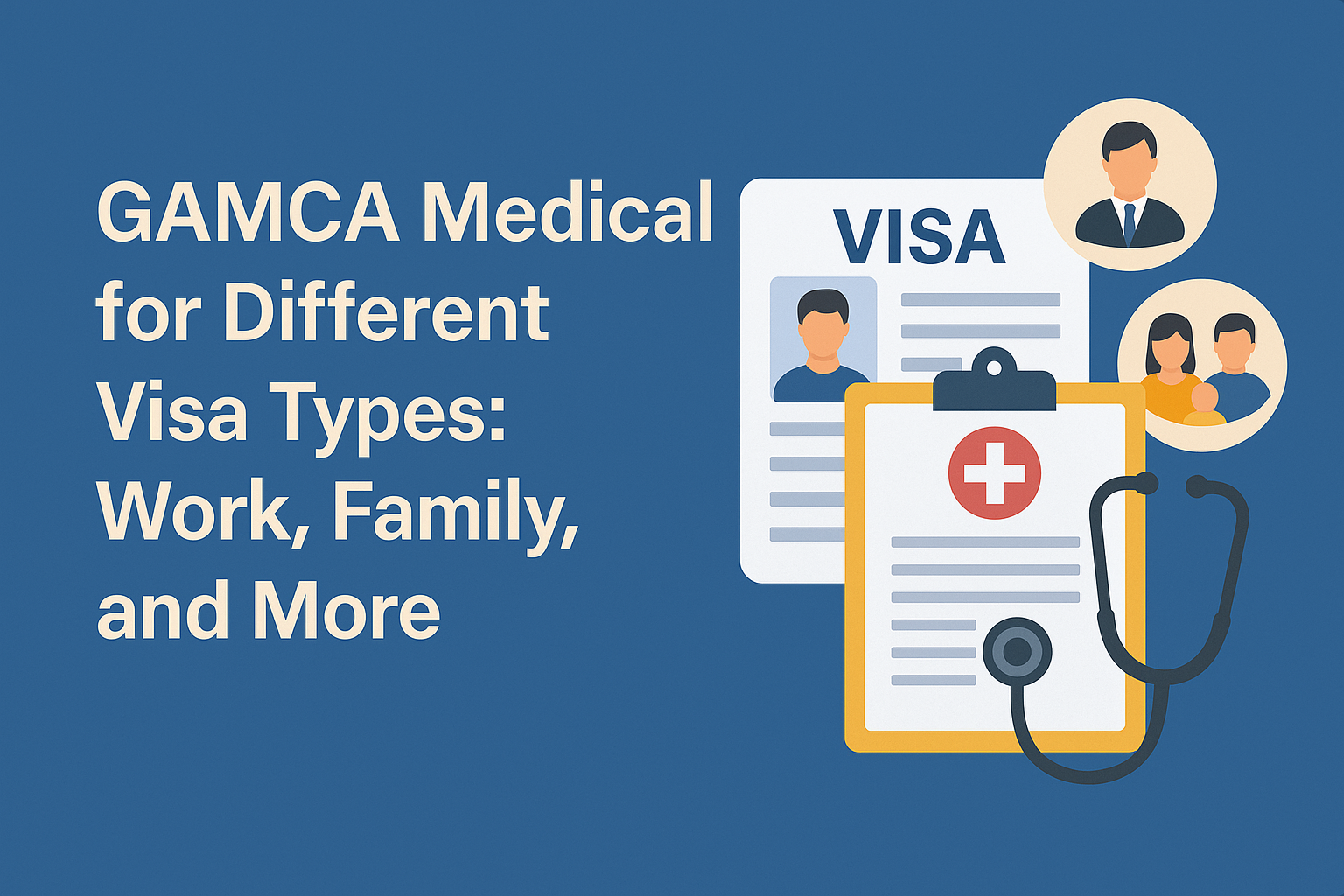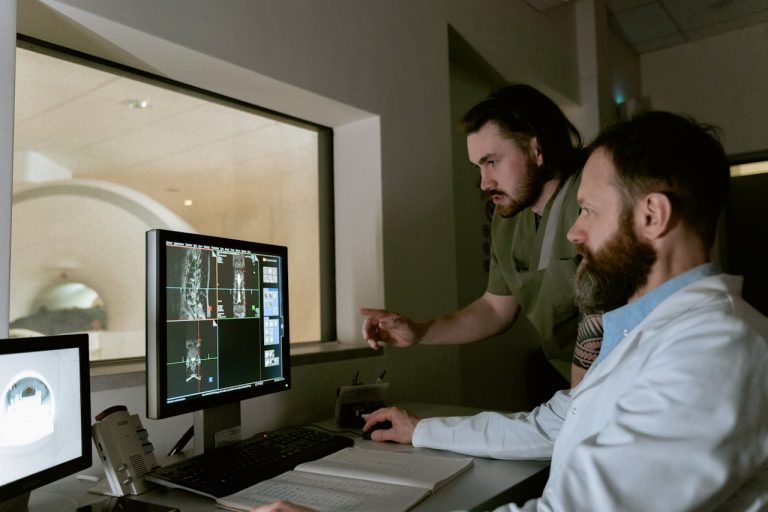
Anyone wishing to reside or work in any of the GCC nations—Saudi Arabia, the United Arab Emirates, Qatar, Kuwait, Oman, and Bahrain—must take the GAMCA (Gulf Cooperation Council Approved Medical Centers Association) medical exam. Depending on the kind of visa you are asking for, there may be minor variations in the GAMCA medical test’s requirements and focus, even though the core goal of protecting public health and stopping the spread of contagious diseases never changes.
1. GAMCA Medical for Work Visas:
- Primary Focus: Candidates for work visas undergo a medical check primarily to assess their physical and mental suitability for the position they have been offered and to make sure they are free of any communicable diseases that could endanger the public or the workplace.
- Common Tests: Consists of a comprehensive physical examination, urine analysis, a chest X-ray (to screen for tuberculosis), blood tests (to screen for HIV, Hepatitis B & C, Syphilis, Malaria, and general health markers), and more. Additionally, some centres may perform exams for hearing and vision.
- Stringency: Work visas might have quite strict restrictions because the applicant must be in good health and able to carry out their responsibilities. An “unfit” status and visa denial may result from the presence of infectious diseases or specific pre-existing ailments.
2. GAMCA Medical for Family Visas (Dependents’ Visas):
- Primary Focus: The GAMCA medical exam is intended to make sure that dependents are free of infectious diseases that could compromise the host nation’s public health when foreigners sponsor their spouses, kids, or parents for a residency visa. It evaluates their overall health as well.
- Common Tests: The tests, which include a general physical examination, a chest X-ray for tuberculosis, and blood tests for infectious illnesses (HIV, Hepatitis B & C, and Syphilis), are frequently the same as those required for work visas. Certain tests may be highlighted or left out based on the applicant’s age. Young children, for example, may have a less thorough examination that concentrates on basic health examinations and immunization status. For female applicants who are of reproductive age, pregnancy tests are typically performed.
- Stringency: The evaluation of physical fitness for employment is less important for dependents who do not work, even if there is still a lot of emphasis on communicable diseases. Serious infectious disorders, however, can still result in a visa being refused.
3. GAMCA Medical for Other Visa Types (e.g., Residence Permits, Student Visas):
- Primary Focus: The need to protect public health will typically be in line with the conditions for other visa categories, such as student visas or long-term residency permits (which are not directly related to employment). Most likely, the focus will be on infectious illness screening.
- Common Tests: The panel of tests, which focuses on blood tests for infectious disorders and a chest X-ray for tuberculosis, may resemble those for family visas. The procedure typically includes a comprehensive physical examination as well.
- Stringency: Depending on the type and length of stay, the precise fitness requirements may change. On the other hand, the lack of infectious diseases is usually a basic necessity.
Important Considerations for All Visa Types:
- Specific Country Regulations: Individual GCC nations may have extra or marginally different medical standards, even if GAMCA offers a broad framework. It is usually advisable to review the particular laws of the nation to which you are applying.
- Approved Medical Centers: The medical examination needs to be performed at a medical facility in your country that has been approved by GAMCA. You are unable to select any healthcare centre.
- Required Documents: Make sure you have your passport, the GAMCA appointment slip, passport-sized photos, and the information you need to apply for a visa.
- Honesty is Crucial: It is vital to be honest about your medical history during the examination. Withholding information can lead to serious consequences later.
- Validity of the Report: GAMCA medical reports have a limited validity period (usually 60-90 days from the date of the examination). Ensure your visa application process aligns with this timeframe.
In conclusion, the GAMCA medical examination’s primary goal is always the same for all visa types: to safeguard public health in the GCC countries. However, the tests’ particular focus and level of difficulty may differ slightly based on whether you’re applying for a work visa, a family visa, or another kind of entry permit. Prioritize accuracy, readiness, and following the instructions given by GAMCA and the embassy of the nation you are visiting.



